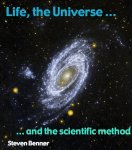Well, I have been taken to the woodshed by my many geologist friends for using the word “geologist” to describe those who use the Periodic Table to guide their expectations, which in turn are key to deciding whether or not a result is viewed as “extraordinary”, in the Sagan sense.
My bad. And to think of it, more correct for such folks would be the word “chemist”. After all, the Periodic Table is at the core of chemistry. Further, those whose work in geology departments centers on the Table might call themselves “geochemists”, to distinguish themselves from those whose work centers on hiking landscapes to plot strata.
Now, anyone who finds the string c-h-e-m-i-s-t somewhere in their CV does not a priori find it absurd to propose that an element below another element in the Table might substitute for an element above. Especially organic chemists. Indeed, the “halogen series” of compounds (fluorine replaced by chlorine replaced by bromine replaced by iodine) is a staple of physical organic chemistry; the changing reactivity of one set of compounds along that series is used to calibrate changing reactivity for many other sets.
This is even true for elements in the middle of the Table. People who base expectations using the Periodic Table (shall we call them X-chemists?) do not discard generally as absurd the notion that silicon might substitute for carbon in some contexts, or arsenic might substitute for phosphorus, with “trend-like” changes in behavior.
But Sagan’s aphorism (“extraordinary claims require extraordinary evidence”) was the focus of my comment, not the naming of fields. It is not easily applied, as “extraordinary” depends on context. If all that you know about chemistry is the Periodic Table, the claim of arsenate DNA might not strike you as requiring extraordinary evidence. Only if you know much more chemistry does this change.


I adore foregathering utile information, this
post has got me even more info!
writes in the official Makeup Bookmarking blog
Be nice to geologists « A Tempting Science
Luv Issues
Be nice to geologists « A Tempting Science
login winlotre
Be nice to geologists « A Tempting Science
Welcome to Tyler Wagner: Allstate Insurance, the leading insurance agency located in Las Vegas, NV.
With years of experience in the insurance industry, Tyler
Wagner and his team are dedicated to providing exceptional customer service and tailored insurance solutions.
From auto insurance to home insurance, to life and business insurance, Tyler Wagner:
Allstate Insurance has your back. Our diverse
coverage options guarantees that you can find the perfect policy to protect what matters most.
Understanding the need for risk assessment, our team works diligently to offer personalized insurance quotes that are tailored to your specific needs.
By leveraging our expertise in the insurance market and state-of-the-art underwriting processes, we ensure that you
receive fair premium calculations.
Navigating insurance claims can be a daunting task, but
with Tyler Wagner: Allstate Insurance by your side,
it’s expert guidance. Our streamlined claims processing system and
supportive customer service team make sure that your claims are processed efficiently and compassionately.
Moreover, we are deeply knowledgeable about insurance law and regulation, guaranteeing that your coverage is consistently
in compliance with current legal standards. Our knowledge
offers an added layer of security to our policyholders, assuring them that their insurance is robust and dependable.
Our agency, we believe that insurance is more than just a policy.
It’s a critical tool for protecting your future and
securing the well-being of those you care about. Therefore, our team make it our mission to
understand your individual needs and guide you through the selection of insurance options, ensuring that you are well-informed and comfortable
with your decisions.
Selecting Tyler Wagner: Allstate Insurance means choosing a
reliable insurance broker in Las Vegas, NV, who values relationships and excellence.
Our team isn’t just here to sell policies; we’re your partners in building a secure future.
So, don’t hesitate to reach out today and discover how Tyler Wagner:
Allstate Insurance can transform your insurance experience in Las Vegas, NV.
Let us show you the difference of working with an insurance
agency that genuinely cares about your needs and works tirelessly to securing your peace
of mind.
At CES 2015, Garmin announced the Vivoactive ,which is a
mixture fitness tracker, GPS sports activities watch, and smartwatch promoting for $250.
Also visit my weeb page; Situs Togel
Wow! Finally I got a blog from where I be capable of in fact get valuable data concerning my study and knowledge.